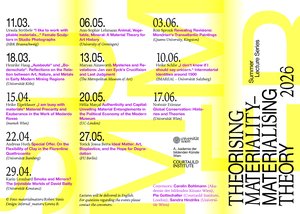Institute
The central mission of the Institute for Conservation-Restoration (IKR) is to impart to students the knowledge and skills that will enable them to preserve cultural assets in their cultural significance in an appropriate manner in the long term. Due to the complex task, the IKR therefore acts at the interface of different scientific and artistic disciplines.
The curriculum is characterized by the interweaving of reflexive-theoretical and research-based practice and provides students with a scientific approach for evaluating the material and immaterial aspects of cultural property. The aim is to educate the independently acting and responsible conservators and restorers within the framework of the ethical codes of the professional field (E.C.C.O. Competences).
The degree program at the IKR offers specialization in several core areas: Painting/Polychrome Wooden Sculptures; Paper/Books; Mural Painting/Architectural Surfaces; Objects – Specialization in Wood/Historical Musical Instruments, in conjunction with the Kunsthistorisches Museum (KHM); Conservation-Restoration of Modern and Contemporary Art, and Media Art Conservation.
The institute supervises the degree course in conservation and restoration and the dissertation degrees Dr. phil. and Dr. rer. nat.
Based on the curriculum, the Institute for Natural Sciences and Technology in the Arts (INTK), the Institute for Education in the Arts (IKL), and the Institute of Art Theory and Cultural Studies (IKW) are involved in teaching and research projects at the IKR. Cooperative teaching projects exist through student tandem projects with the Institute of Art and Architecture (IKA) and the Institute of Fine Arts (IBK). Collaboration with the Academy’s university collections and those involved in exhibitions is continually being expanded in teaching and practice.
The main research areas at the IKR include art technology, material culture studies, architectural heritage conservation, the history of restoration, and the oral history project on the history of restoration in Austria. The research-led development of conservation methods is based on case studies.
Each semester, the IKR offers the Best Available Copy lecture series on current theoretical methods and the long-term preservation of technology- and time-based art.
Internationally, the IKR cooperates with museums, heritage agencies and research institutes in the context of restoration projects, including in the field of media restoration and the preservation of art and colonial cultural heritage. Erasmus programs and internships abroad are promoted in exchange with international universities and cultural institutions. At the IKR, international students also pursue doctoral studies in English.
The IKR’s Augasse campus houses conservation studios, workshops and laboratories for scientific, artistic, craft, and digital techniques with regard to practice and teaching in painting, paper, wall, wood conservation, and modern materials. A media laboratory for the conservation of time-based media art is under construction.
Current perspectives for the future include a joint Center for Materials Science in Art and Conservation with the INTK, the IKR, and the Academy’s research institutes, and a focus on digital conservation strategies.
Upcoming Events
-
–
Plastic Identification Workshop
In collaboration with the KHM-Museumsverband, Weltmuseum Wien, Theatermuseum, and the Academy of Fine Arts Vienna, Department of Conservation-Restoration, a Plastic Identification Workshop will take place in March 2026.
Workshop
Weltmuseum Wien
Heldenplatz
1010 ViennaConservation – Restoration
![Plastic Identification Workshop held at S.M.A.K., Ghent (BE). [br] Photo credits: Titus Simoens.](https://www.akbild.ac.at/en/institutes/conservation-restoration/events/plastic-identification-workshop/bildschirmfoto-2026-02-03-um-10-22-53.png/@@images/image-300-94bce11fdfae1f689e84dc40ad7034f7.png)
-
–
Theorising Materiality – Materialising Theory
A lecture series organized by the Insitute for Conservation – Restoration, the University of Vienna, and the Courtauld Institute.Convenors: Carolin Bohlmann (Akademie der bildenden Künste Wien), Pia Gottschaller (Courtauld Institute, London), Sandra Hindriks (Universität Wien).
Summer Lecture Series
Lecture hall C1
Hof 2
Spitalgasse 2
1090 ViennaConservation – Restoration






